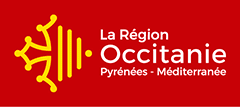On October 15, 2019, Montpellier Méditerranée Métropole signed the French Professional Urban Farming Association charter. The goal is to support producers by reinforcing their ties with residents.

The Oasis Citadine urban farm at Flaugergues, promoting permaculture.
Agroecological practices
Montpellier Méditerranée Métropole is fully committed to developing direct-to-consumer and local circuits, notably enabling the Condamine urban farm to set up in the Millénaire business district, producing organic fruit and vegetables on a 5-hectare site. Local authorities also supported a research project carried out by Paul Valéry University, Inra, and CEFE at Oasis Citadine, on agroecological practices inspired by permaculture seeking to recreate living ground in an urban context.This urban farm was created at Flaugergues, private property on Montpellier’s east side, where city dwellers go to learn how to cultivate their gardens.
“Urban farming is also an educational undertaking, as transforming our cities and food system is a key part of the ecological transition, “ explains Sébastien Girault, co-founder of the collaborative farm. “With this tool, Montpellier Métropole will bring green back to the city by providing new possibilities in the urgent fight against climate change,” he adds.
Il y a 0 commentaire sur cette page
Laisser un commentaire




